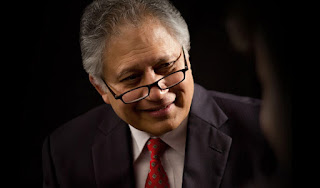Leadership Programs Help Colleges Stand Apart- Shiv Khera
We think that everyone has the capacity to be a leader and that education, training, and development can help people develop their unique gifts, talents, and skills. The main objective of leadership programs for colleges is to foster an environment of engaged and ethical leadership. We also think that leadership is a process rather than a position.
It is essential that we practise and teach a transformative model of leadership that acknowledges a plurality of identities and encourages participants to build relationships that meaningfully engage difference as Shiv Khera works to increase the diversity of its undergraduate student population. Effective leadership is also necessary outside of conventional contexts and boundaries. Students are encouraged by Shiv Khera's leadership programs for colleges to consider how they can exercise leadership, in their local communities regionally, and internationally.
What are leadership abilities?
Leadership skills are the abilities and strengths that individuals demonstrate in order to oversee processes, guide initiatives, and steer their employees toward goal achievement. Leadership abilities are critical in preparing executives to make thoughtful decisions about their organisation's mission and goals, as well as properly allocating resources to achieve those objectives. The ability to delegate, inspire, and communicate effectively are all valuable leadership skills. Other qualities of a leader include honesty, confidence, commitment, and creativity.
As we proceed, we'll work to develop a multi-year leadership programme that makes the most of the current curricular and extracurricular learning opportunities. To make sense of these experiences and deepen their understanding of their own leadership practice, students will learn to use tools of reflection and feedback. At the conclusion of their undergraduate experience, students who have taken part in particular leadership programmes and who can demonstrate their engagement with as well as understanding of the leadership learning outcomes (as listed below) will be honoured.
LEADERSHIP LEARNING OUTCOMES
COGNITIVE COMPLEXITY
Students will improve their critical thinking abilities.
Students will gain an understanding of change processes and be able to think critically about change barriers.
Students will comprehend and be able to apply a decision-making process.
ACQUISITION, INTEGRATION, AND APPLICATION OF KNOWLEDGE
Students will gain an understanding of the history of leadership as well as current leadership theories. Furthermore, students will understand how leadership models are implemented on a personal, local, and global scale. Students will learn about different cultures, cross-cultural communication, the dynamics of privilege and oppression, and how power is used between groups.
Students will comprehend how ethics, morals, and values are related to their leadership quandaries.
Students will be able to incorporate their lived experiences into the process of developing leadership.
HUMANITARIANISM/CIVIC PARTICIPATION
Students will learn to live out humanitarian values such as social justice, social responsibility, as well as serving as positive social change agents.
Students will develop and investigate their own competence in the dimensions of difference, particularly as they relate to others in their communities.
Students will interact with the greater Baltimore community to learn about civic responsibility as a leader.
Students will learn how to debate with civility.
INTERPERSONAL CAPACITY
Students will gain team leadership skills through active group participation.
As leaders, students will examine their own and others' intrinsic and extrinsic motivations.
Students will gain a better understanding of their personal identities and how they shape their leadership and followership.
Students will learn how to engage and collaborate constructively with others by using their minds, hearts, voices, and ears.
INTRAPERSONAL CAPACITY
Students will discover and apply their personal values.
Students will gain self-assurance and belief in themselves and their ideas. Their self-assurance will allow them to be challenged without feeling intimidated, as well as embrace ambiguity.
The student will grow accustomed to taking risks.
Students will realise that being a leader entails more than just holding a position.
Students will investigate and discover what they require to maintain a sense of personal balance, as well as ways to seek personal renewal.
PRACTICAL CAPACITY
Through leadership practice, students will gain a comprehensive set of practical tools and skills on which to rely. Time management, meeting management as well as agenda setting, group dynamics, and team building are examples of such skills and tools fro leadership programs for colleges.
Students will learn how to effectively communicate (via written and spoken word, nonverbal language, electronic tools, and listening skills) in order to build relationships, manage conflicts, and work across differences.
Students will learn how to engage in productive conflict and work toward conflict resolution.
Students will learn how to articulate their practical skills and tools effectively on a resume, portfolio, and in interviews.
About Shiv Khera’s Leadership Program
More than valuables, our children require values. We tell our clients that what we do here is repair work when we do corporate training and for leadership programs for colleges. You won't have to repair them if you prepare them. Where Do You learn it? In Schools and Universities. A powerful programme designed to help individuals who want to learn about leadership and management succeed. This programme will prepare you to succeed in the business world.
You will learn:
Identifying the characteristics of a good leader.
Attitude-forming factors
Develop performance pride
Benefits of a positive attitude
Negative attitude consequences
Differentiate between skill and competence
Differentiate between winners and losers
Steps for developing a positive attitude
Self-evaluation and evaluation

.jpg)

Comments
Post a Comment